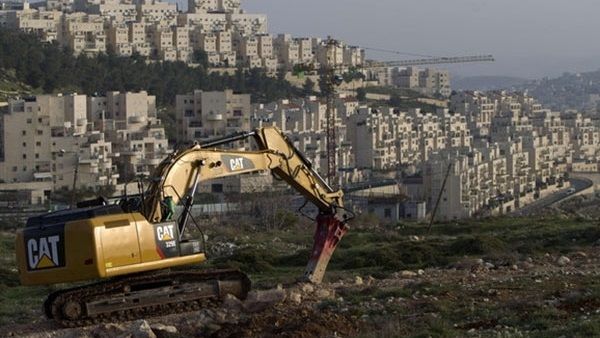Israel's parliament on Monday voted in favour of a law that would retroactively legalize Israeli settlements built on Palestinian-owned land, a move that was swiftly condemned by Palestinian officials.
Sixty of the Knesset's 120 members voted in favour of the bill after its third and final reading and 52 against it. The remaining members did not take part in the vote, including Prime Minister Benjamin Netanyahu.
"The Israeli parliament has just approved a law to legalize theft of Palestinian land. Looting is illegal," Saeb Erekat, a leader of the Palestine Liberation Organization, said.
He said the bill "negates peace and the possibility of a two-state solution," according to Haaretz newspaper. "Nobody should have doubts about the Israeli government's will to destroy any chances for a political solution."
Far-right lawmaker Bezalel Smotrich praised the bill's passage, according to Haaretz, saying, "From here we move on to expanding Israeli sovereignty (on the West Bank) and continuing to build and develop settlements across the land."
Israeli campaign group Peace Now said the bill made it clear that Netanyahu was "willing to compromise the future of both Israelis and Palestinians in order to satisfy a small group of extreme settlers for the sake of his own political survival."
The bill affects some 4,000 homes in the West Bank and stipulates that Israeli settlements found to be illegally built on Palestinian-owned land will not be removed. Instead, the legal owners of the land will receive alternate land or financial compensation.
Prior to the vote, Israel's attorney general, Avichai Mandelblit, called the bill unconstitutional and vowed that he would not defend it before Israel's Supreme Court.
Nickolay Mladenov, the UN coordinator for the Middle East peace process, also said prior to the vote that, if the bill were to be adopted, it would "have far-reaching legal consequences for Israel and greatly diminish the prospects for Arab-Israeli peace."
Adalah, an Arab rights group, promised Sunday that it would file a Supreme Court petition against the law.
Around 600,000 Israelis currently live in more than 200 settlements in the West Bank and East Jerusalem. The settlements are considered a major obstacle to a peace settlement with the Palestinians.
The bill was originally proposed as a way to save residents from the hilltop outpost of Amona from being evicted after Israel's Supreme Court ruled it had been built on privately owned Palestinian land.
However, Amona was later excluded from the bill in order to help its chances of passing, and the residents were evicted last week.
The international community views Israeli settlements in the West Bank as illegal, and even the White House of US President Donald Trump, widely perceived as friendly to such activity, recently signalled that Israel should slow down after it approved more than 5,000 settler homes within a month.
"The construction of new settlements or the expansion of existing settlements beyond their current borders may not be helpful" towards the peace process with the Palestinians, the White House said Friday.
By Miranda Lee Murray and Sara Lemel









